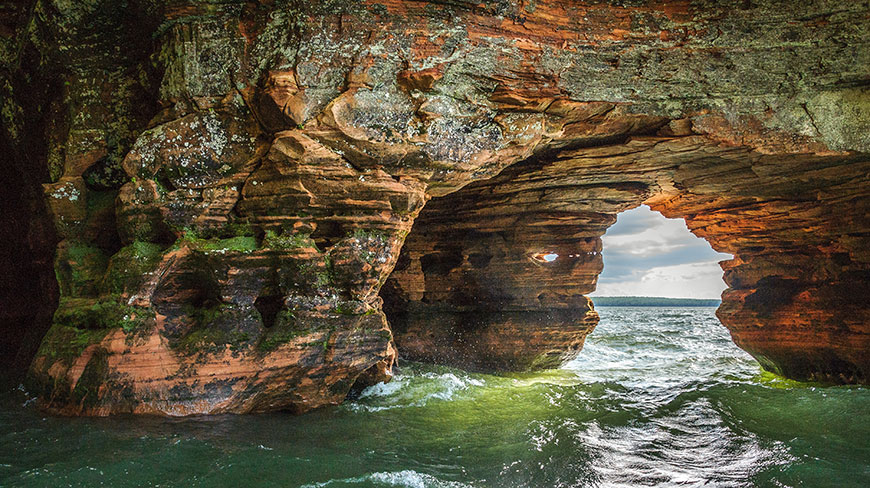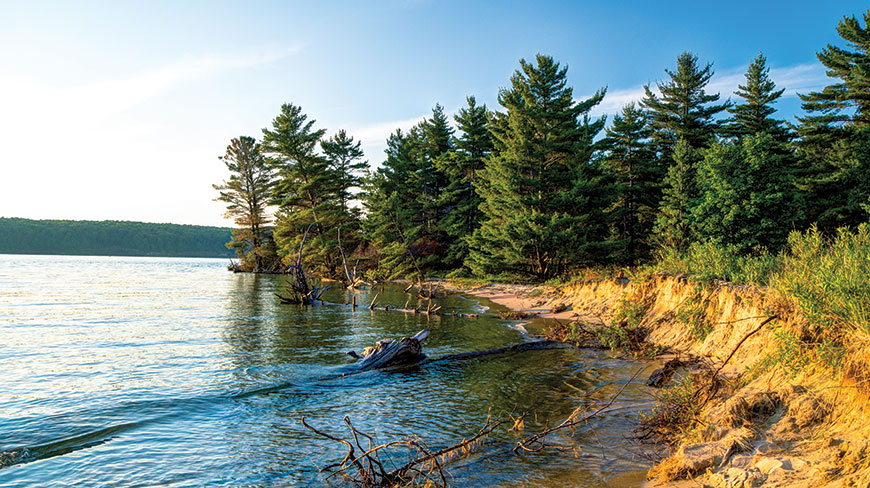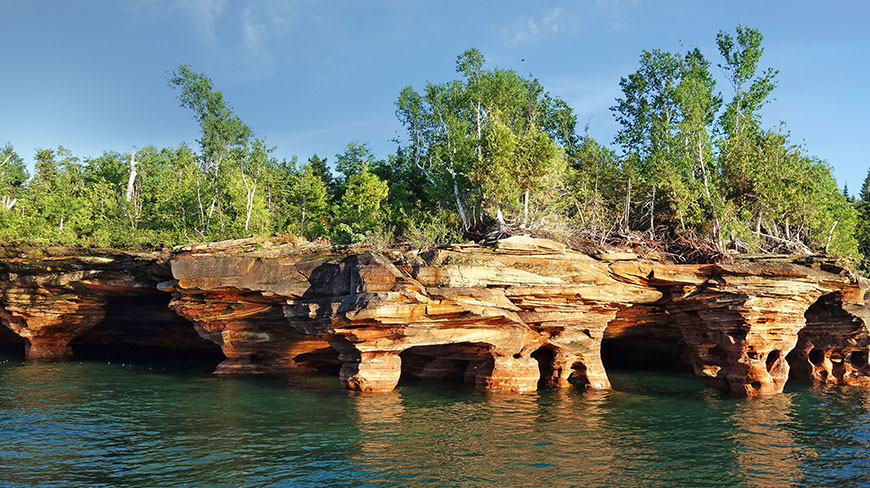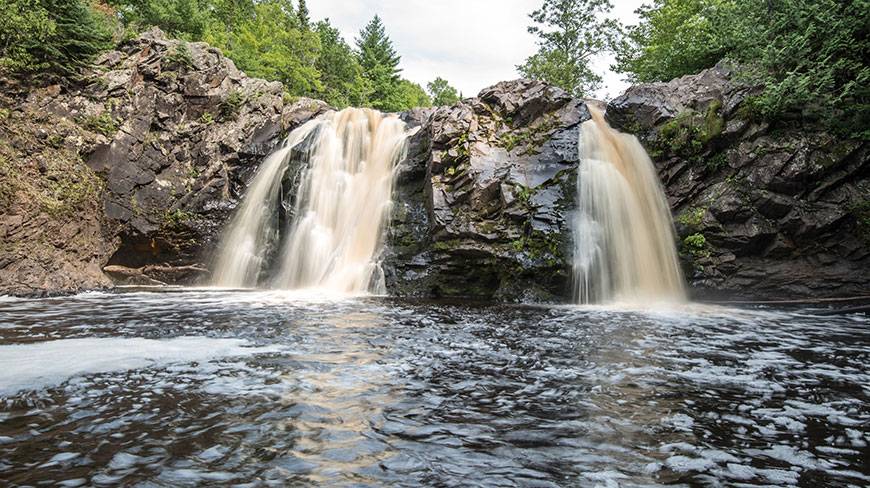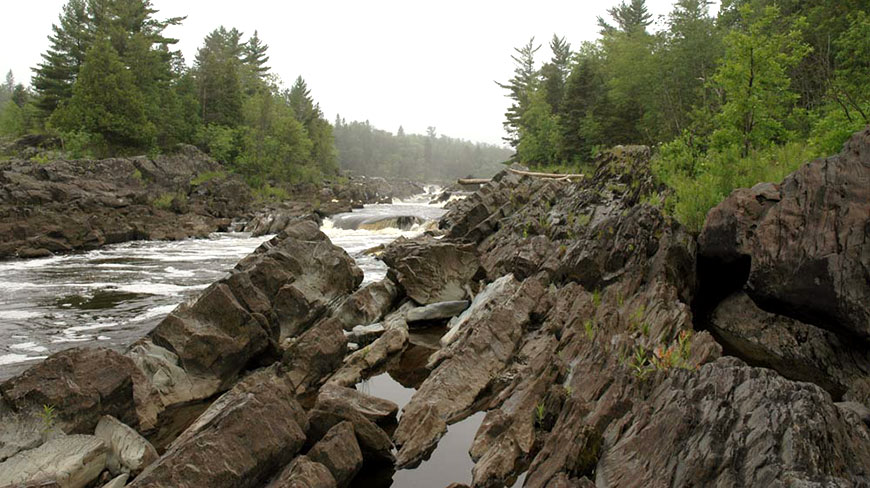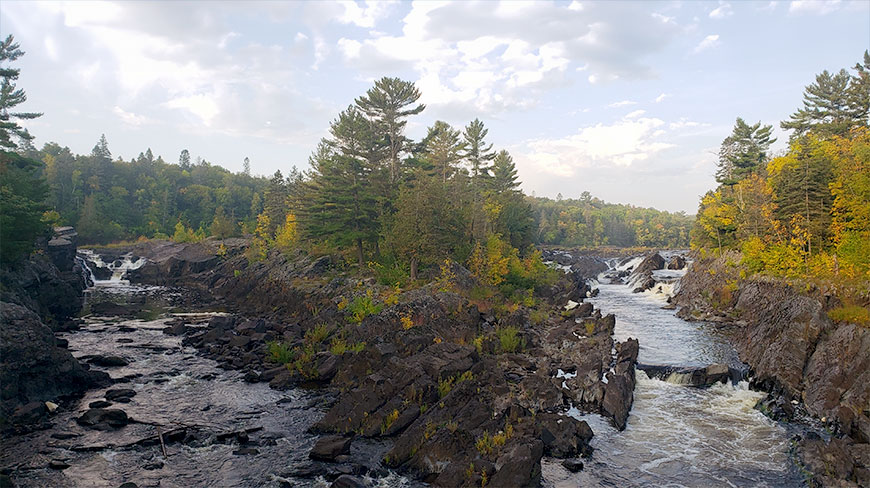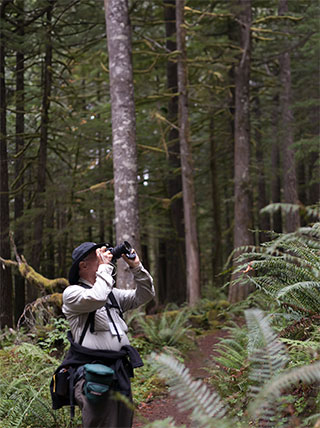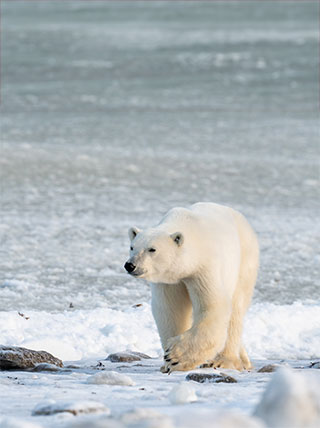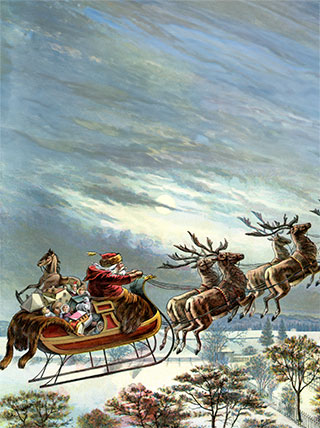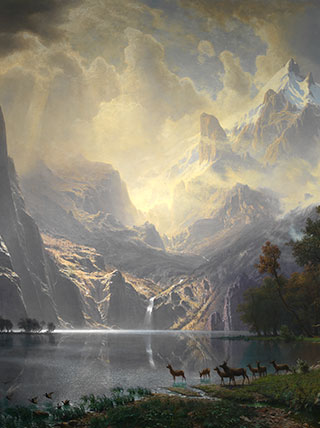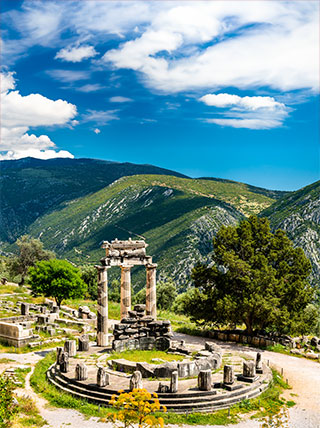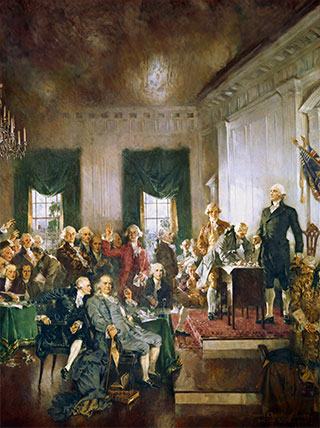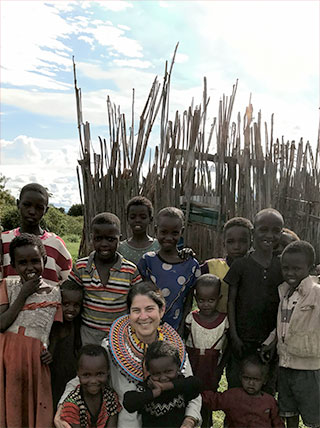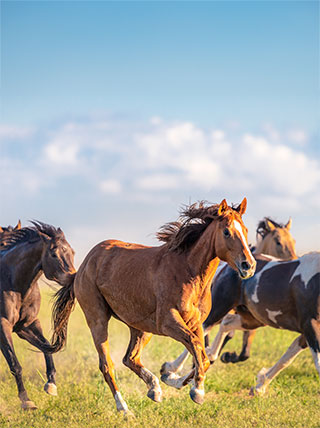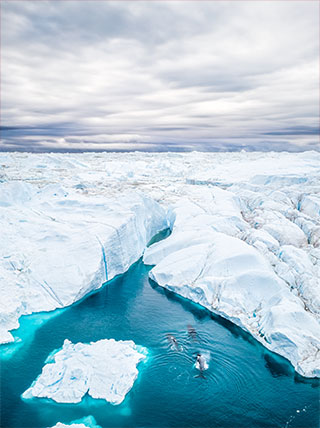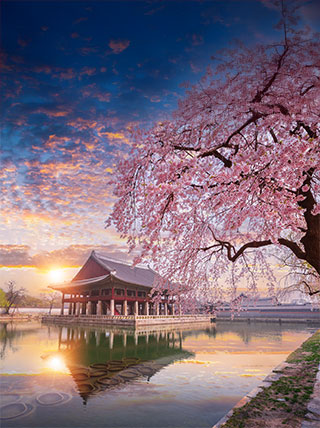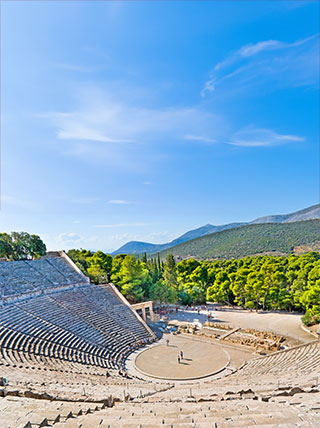Wisconsin
A Superior Exploration: Lake Superior’s History & Ecology
Program No. 24850RJ
“Superior” learning awaits on this adventure through northern Wisconsin’s natural wonders — explore the ecology and human history of this fascinating Great Lake!
Enroll with Confidence
We want your Road Scholar learning adventure to be something to look forward to—not worry about. Learn more
Protecting the Environment
We offset a portion of the emissions created by your travel. Learn more
Prefer to enroll or inquire by phone?
800-454-5768
Select your type of room
Price will update based on selection
Prices displayed below are based on per person,doubleoccupancy.
DATES
& starting prices
PRICES
DATES
& starting prices
PRICES
Jun 22 - Jun 27, 2025
Starting at
2,189Jul 20 - Jul 25, 2025
Starting at
2,189Aug 3 - Aug 8, 2025
Starting at
2,189Aug 17 - Aug 22, 2025
Starting at
2,189Not seeing the date you're looking for?
To be notified if dates of this program become available, click the button below.
This date is available to book as a private experience for your group!
6 days
5 nights
12 meals
5B 4L 3D
1
Check-in, Registration, Dinner, Estuarine Research Reserve
Superior, Wisconsin
2
Indigenous Community Learning and Engagement
Superior, Wisconsin
3
History and Ecology Learning and Engagement
Superior, Wisconsin
4
Circle of Parks
Superior, Wisconsin
5
Lake Superior Research Institute Floating Classroom
Superior, Wisconsin
6
Program wrap up
Superior, Wisconsin
At a Glance
From Lake Superior’s glacial and tectonic geology to its significance to indigenous peoples and importance to environmental research, the largest freshwater lake in the world makes a fascinating study. Embark on a journey exploring western and southern Lake Superior, including a history of the Twin Ports, field trips to historical sites and presentations by local indigenous elders and historians. Enjoy hands-on learning experiences, wading in the rivers of the Brule River State Forest to catch and identify aquatic creatures and exploring natural wonders through canoeing and hiking!
Activity Level
On Your Feet
Best of all, you’ll…
- Investigate freshwater ocean ecology through the University of Wisconsin-Superior’s Lake Superior Research Institute Floating Classroom, a new hybrid research and educational vessel.
- Learn from park experts about the rich geology and ecology of Amnicon Falls State Park, Pattison State Park and Jay Cooke State Park.
- Explore the indigenous history of the area through presentations from a local tribal historian and tribal environmental scientist.
Suggested Reading List
(4 books)
Visit the Road Scholar Bookshop
You can find many of the books we recommend at the Road Scholar store on bookshop.org, a website that supports local bookstores.
A Superior Exploration: Lake Superior’s History & Ecology
Program Number: 24850
Minnesota’s Geology
Minnesota’s Geology provides a history of the past 3.5 billion years in the area’s development. In accessible language, Minnesota-based geologists Richard W. Ojakangas and Charles L. Matsch tell the story of the state’s past and offer a guide for those who want to read geological history firsthand from the rocks and landscapes of today.
Geology on display: Geology and scenery of Minnesota's North Shore state parks
This book is out of print but is often found in Minnesota Libraries. It is a great resource on understanding the geology of the North Shore of Lake Superior.
Roadside Geology of Minnesota
You may have heard that Minnesota’s ten thousand lakes are the hoofprints of Paul Bunyan’s big blue ox, Babe. “Don’t you believe it!” writes author Dick Ojakangas. Though the lakes, which formed at the end of the most recent ice age, may be Minnesota’s most famous features, the glaciated countryside disguises a much longer history of volcanoes and plate collisions—not surprising when you learn that Minnesota was at the active edge of the fledgling North American continent for several billion years.
Roadside Geology of Minnesota steers you over glacial moraines and till plains to some of the state’s unparalleled geologic features, such as the Morton Gneiss, once thought to be the oldest rock on Earth; the St. Peter Sandstone, one of the purest sandstones in the world; the banded iron-formation, the source of iron for the Great Lakes steel industry; and the ancient shorelines of Glacial Lake Agassiz, one of the largest glacial lakes ever to have existed in North America. The book’s introduction presents an overview of Minnesota’s geologic history, and forty-two road guides discuss the landforms and rocks visible from a car window and at nearby waysides and parks, including Pipestone National Monument, Grand Portage National Monument, and Voyageurs National Park.
The Great Lakes Water Wars
The Great Lakes are the largest system of freshwater lakes in the world and America’s greatest freshwater resource. For over a century they have been the target of controversial diversion schemes designed to sell, send, or ship water to thirsty communities, sometimes far from the source. In part to protect the Great Lakes from overzealous entrepreneurship, the Great Lakes Compact was signed in 2008. Although the Compact fulfills that promise and ensures that Great Lakes water stays within the Basin, some would say it has only shifted the controversy closer to home. Now water diversion controversies of a different kind are some of the most fought-over environmental issues in the region. Will the water wars ever be settled?
Journalist Peter Annin delves deeply into the fraught history of water use in the Great Lakes region and recaps the story of the Chicago River diversion, which reversed the flow of the river, fundamentally transforming the Great Lakes ecosystem. A century later it remains “the poster child of bad behavior in the Great Lakes.” Today, with growing communities and a warming climate, tensions over water use are high, and controversies on the perimeter of the Great Lakes Basin are on the rise. In this new and expanded edition of The Great Lakes Water Wars, Annin shares the stories of New Berlin and Waukesha, two Wisconsin communities straddling the Basin boundary whose recent legal battles have tested the legislative strength of the newly signed Compact. Annin devotes a new chapter to the volatile issue of the invasive Asian carp—a voracious species that reproduces at a disturbing rate—which is transforming the ecology of the river as it makes its way through the Chicago River diversion and ever closer to Lake Michigan.
Program
At a Glance
Duration
6 days
Program Begins
Superior, Wisconsin
Program Concludes
Superior, Wisconsin
Meals
12
| 5B |
4L |
3D |
Activity Level
From Lake Superior’s glacial and tectonic geology to its significance to indigenous peoples and importance to environmental research, the largest freshwater lake in the world makes a fascinating study. Embark on a journey exploring western and southern Lake Superior, including a history of the Twin Ports, field trips to historical sites and presentations by local indigenous elders and historians. Enjoy hands-on learning experiences, wading in the rivers of the Brule River State Forest to catch and identify aquatic creatures and exploring natural wonders through canoeing and hiking!)
Best of all, you'll...
- Investigate freshwater ocean ecology through the University of Wisconsin-Superior’s Lake Superior Research Institute Floating Classroom, a new hybrid research and educational vessel.
- Learn from park experts about the rich geology and ecology of Amnicon Falls State Park, Pattison State Park and Jay Cooke State Park.
- Explore the indigenous history of the area through presentations from a local tribal historian and tribal environmental scientist.
Activity Level
On Your Feet
Suggested Reading List
View Full List
(4 Books)
You can also find many of the books we recommend at the Road Scholar store on bookshop.org, a website that supports local bookstores.
HAVE QUESTIONS?
Prefer to enroll or inquire by phone?
We can help. Give us a call, and we can answer all of your questions!
Call
800-454-5768
While we make every effort to ensure the accuracy of our published materials, programs are typically advertised more than a year prior to their start date. As a result, some program activities, schedules, accommodations, personnel, and other logistics occasionally change due to local conditions or circumstances. Should a major change occur, we will make every effort to alert you. For less significant changes, we will update you during orientation. Thank you for your understanding.
Duration
6 days
5 nights
What's Included
12 meals | 5B | 4L | 3D |
3 expert-led lectures
6 expert-led field trips
2 hands-on experiences
An experienced Group Leader
5 nights of accommodations
Taxes and customary gratuity
Road Scholar Assurance Plan
Day
1
Check-in, Registration, Dinner, Estuarine Research Reserve
Location:
Superior, Wisconsin
Meals:
D
Stay:
Barkers Island Inn
Activity Note
Walking .5 miles to research reserve exploration on flat terrain, getting on and off motorcoach, 1 hour total drive time
Afternoon:
Arrive at Hotel. After you check in and have your room assignment, join us at the Road Scholar table in the lobby to register with the program staff, get any updated information, and confirm the time and location of the Orientation session. If you arrive late, please locate your Group Leader, and let them know you have arrived.
Dinner:
Catered Dinner at Lake Superior National Estuarine Research Reserve.
Evening:
The Group Leader welcome and evening field trip will be held at the Lake Superior National Estuarine Research Reserve. We will review up-to-date program schedule, discuss roles and responsibilities logistics safety guidelines, emergency procedures, and answer questions. We will learn from a series of local experts who will give lectures and lead field trips. Program-related travel and transfers will be via private motorcoach [or bus] unless noted otherwise. Periods in the schedule designated as “Free time” and “At leisure” offer opportunities to do what you like and make your experience even more meaningful and memorable according to your personal preferences. The Group Leader will be happy to offer suggestions. Program activities, schedules, personnel, and indicated distances or times may change due to local circumstances/conditions. In the event of changes, we will alert you as quickly as possible. Thank you for your understanding. We will explore the Lake Superior National Estuarine Research Reserve, view pieces from the University of Wisconsin Superior’s Maritime collection and enjoy a presentation on history of the area.
Day
2
Indigenous Community Learning and Engagement
Location:
Superior, Wisconsin
Meals:
B,L
Stay:
Barkers Island Inn
Activity Note
1.5 hours of walking and periods of standing during explorations, getting on and off motorcoach
Breakfast:
At the hotel
Morning:
After breakfast, we will travel by motorcoach to Wisconsin Point and Wisconsin Point Indian Burial Grounds. We will be met there by a local tribal historian and environmental scientist who will give us a presentation on the history and culture of this area. As early as the 1740’s, Wisconsin point was home to the Fond du Lac Band of Lake Superior Chippewa and the site of the Wisconsin Point Indian Burial Grounds, which were recently returned to the Fond du Lac Band. Wisconsin Point is a three-mile-long natural sand spit in Superior, Wisconsin, that divides Allouez Bay from Lake Superior. Together, Wisconsin Point and Minnesota Point form one of the longest freshwater bay-mouth bars in the world. Forests of white and red pines fill the interior of Wisconsin Point, with sand dunes, wetlands, and beaches lining Lake Superior. The xeric forest on Wisconsin Point is an important stopover habitat for a diverse range of migratory birds, including many rare species.
Lunch:
Nutritious Picnic Lunch
Afternoon:
After lunch, we will visit the research project site of Great Lakes Indian Fish and Wildlife Commission (GLIFWC), where we will see a presentation given by a tribal environmental scientist. GLIFWC represents eleven Ojibwe tribes in Minnesota, Wisconsin and Michigan, providing natural resource management, conservation enforcement, legal and policy analysis and public information services regarding the Treaties of 1836, 1837, 1842 and 1854.
Dinner:
This meal has been excluded from the program cost and is on your own to enjoy what you like. The Group Leader will be happy to offer suggestions!
Evening:
After dinner, we will explore the SS Meteor: The SS Meteor is the last remaining above-water whaleback ship in the world! The whaleback freighter was designed by Captain Alexander McDougall and built here in Superior, Wisconsin. These ships, innovative for their time, earned the name “whaleback” for their cigar-shaped steel hulls that rode low in the water when loaded with cargo.
Day
3
History and Ecology Learning and Engagement
Location:
Superior, Wisconsin
Meals:
B,L
Stay:
Barkers Island Inn
Activity Note
One hour of walking and periods of standing during facility visits, getting on and off motorcoach, getting in and out of canoe, driving time 1 hour
Breakfast:
At the hotel
Morning:
After breakfast, we will have a lecture about the Brule River State Forest . We will learn about the tools and be given training on water sampling at the Brule River. Then, we will board motorcoach to travel to Brule River State Forest.
Lunch:
Picnic Lunch at Brule River State Forest
Afternoon:
After lunch, we will learn about the fishes of the Brule River while exploring the lamprey barrier on a three-four hour guided canoe ride.
Dinner:
On your own to enjoy local fare.
Evening:
At your leisure
Day
4
Circle of Parks
Location:
Superior, Wisconsin
Meals:
B,L,D
Stay:
Barkers Island Inn
Activity Note
Getting on and off motorcoach, 2 hour total drive time, periods of standing and hiking
Breakfast:
At the hotel
Morning:
After breakfast, we will board the motorcoach to explore the geological origin for Lake Superior – Glacial and Tectonic Geology. We will spend the morning exploring three beautiful local parks, Amnicon Falls State Park, Pattison State Park, Jay Cooke State Park, to learn about the rich geological and ecological history of the region.
Lunch:
Picnic at Jay Cook State Park.
Afternoon:
After lunch we will take a hike to a ranger talk down at the St. Louis River and then walk across on the "swinging bridge". You'll want your camera to capture this spectacular gorge with all of it's tilted rocks and slate!
Dinner:
At a local restaurant
Evening:
After dinner, enjoy a lecture on program content
Day
5
Lake Superior Research Institute Floating Classroom
Location:
Superior, Wisconsin
Meals:
B,L,D
Stay:
Barkers Island Inn
Activity Note
Getting on and off motorcoach, getting on and off boat, .5 hour total driving time
Breakfast:
At the hotel
Morning:
After breakfast, we will travel via motorcoach to the Sadie Ann, floating classroom. On the ship, we will travel to the first sampling location in the Duluth-Superior Harbor, where we will collect and analyze samples.
Lunch:
Served on board the Sadie Ann
Afternoon:
After lunch, we will travel to our second sampling location on Lake Superior, to collect and analyze samples. While traveling back to the dock, we will discuss regional environmental concerns.
Dinner:
At a local restaurant
Evening:
At your leisure
Day
6
Program wrap up
Location:
Superior, Wisconsin
Meals:
B
Breakfast:
At the hotel
Morning:
Program wrap up: reflections and resources. If you are returning home, safe travels. If you are staying on independently, have a wonderful time. If you are transferring to another Road Scholar program, detailed instructions are included in your Information Packet for that program. We hope you enjoy Road Scholar learning adventures and look forward to having you on rewarding programs in the future. Don’t forget to join our Facebook page and follow us on Instagram. Best wishes for all your journeys!
Please select a day to update the map
Map details are not available for this location.
MEALS
12 Meals
5 Breakfasts
4 Lunches
3 Dinners
LODGING
Lodgings may differ by date. Select a date to see the lodgings specific to that date.
Showing Lodging For:
- Aug 17, 2025 - Aug 22, 2025
- Jun 22, 2025 - Jun 27, 2025
- Jul 20, 2025 - Jul 25, 2025
- Aug 03, 2025 - Aug 08, 2025
- Aug 17, 2025 - Aug 22, 2025

No reviews for this trip.
This learning adventure hasn't been reviewed yet.

